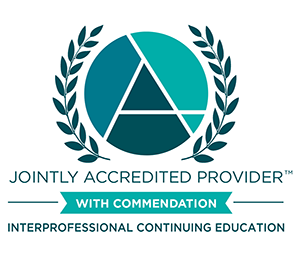- Laura Thompson
- Mckenna Swann
Series Overview
Hospital Medicine Quality Conference is a monthly conference for the division of hospital medicine (including physicians and advanced practice providers). The focus of the conference is to review cases with important quality or patient safety issues and have an open discussion about opportunities for change. These discussions can also result in active quality improvement projects for the division. If there are educational opportunities, we may invite experts within the field to speak as well.
Intended Audience
MD/DO, APRN, and Physician Assistants.
Planning Committee
| Katrina Wolfe, MD, Chair | Laura Thompson & McKenna Swann, Coordinator | Sean O'Neill, MD | Jordan Kenik, MD |
| Sara Westergaard, MD | Sarah Saari, NP | Nicole Bonk MD | Ann Sheehy, MD |
Accreditation
Accreditation Statement
 | In support of improving patient care, the University of Wisconsin–Madison ICEP is jointly accredited by the Accreditation Council for Continuing Medical Education (ACCME), the Accreditation Council for Pharmacy Education (ACPE), and the American Nurses Credentialing Center (ANCC) to provide continuing education for the healthcare team. |
Credit Designation Statements
American Medical Association (AMA) | |
The University of Wisconsin–Madison ICEP designates this live activity for a maximum of 1 AMA PRA Category 1 Credit(s)™. Physicians should claim only the credit commensurate with the extent of their participation in the activity. | |
American Nurses Credentialing Center (ANCC) | |
The University of Wisconsin–Madison ICEP designates this live activity for a maximum of 1 ANCC contact hour. ANCC pharmacotherapeutic contact hours will be calculated and awarded as appropriate per session to meet the needs of advanced practice nurses. | |
AAPA Category 1 CME credit | |
| The University of Wisconsin–Madison ICEP has been authorized by the American Academy of PAs (AAPA) to award AAPA Category 1 CME credit for activities planned in accordance with AAPA CME Criteria. This activity is designated for 1 AAPA Category 1 CME credits. PAs should only claim credit commensurate with the extent of their participation. |
Continuing Education Units | |
The University of Wisconsin–Madison ICEP, as a member of the University Professional & Continuing Education Association (UPCEA), authorizes this program for 0.1 continuing education units (CEUs) or 1 hour. | |
POLICY ON FACULTY AND SPONSOR DISCLOSURE
It is the policy of the University of Wisconsin–Madison Interprofessional Continuing Education Partnership (ICEP) to identify, mitigate and disclose all relevant financial relationships with ineligible companies* held by the speakers/presenters, authors, planners, and other persons who may influence content of this accredited continuing education (CE). In addition, speakers, presenters and authors must disclose any planned discussion of unlabeled/unapproved uses of drugs or devices during their presentation. For this accredited continuing education activity, all relevant financial relationships have been mitigated and detailed disclosures are listed below.
* Ineligible companies are those whose primary business is producing, marketing, selling, re-selling, or distributing healthcare products used by or on patients. The ACCME does not consider providers of clinical service directly to patients to be commercial interests.
Detailed disclosures will be available prior to the start of the activity.
Disclosures for Planning Committee
Competencies
ACGME/NURSING
Medical Knowledge
Practice-Based Learning and Improvement
Interpersonal and Communication Skills
Systems-Based Practice
NAM/NURSING COMPETENCIES
Apply Quality Improvement
INTERPROFESSIONAL EDUCATION COLLABORATIVE COMPETENCIES
Interprofessional Communication
Additional Activity Goals
| JAC 23 |
IP — Competence/Performance/Patient Outcomes
As a result of participation in this educational series, members of the healthcare team will:
- Analyze patient cases where quality and/or safety issues became evident
- Identify quality gaps, feasible interventions to close the gaps, and a group of people to implement these interventions
- Improve interprofessional clinical communication and practice to provide safe, high-quality care of diverse hospitalized patients

 Facebook
Facebook X
X LinkedIn
LinkedIn Forward
Forward